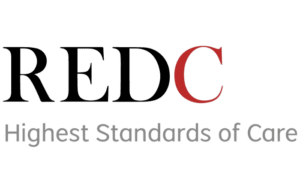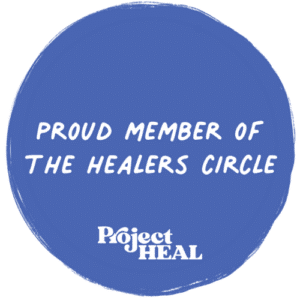One of the biggest obstacles in treating eating disorders is relapse. Stress-induced relapse occurs when your stress levels are too high to maintain your recovery, and you resort to past eating disorder behaviors and routines that made you feel better, giving you a sense of control. Understanding what stress-induced relapse is, how it affects those with eating disorders, and what to do to minimize risk is essential for individuals seeking to reduce relapses.
Common Causes of Stress-Induced Relapses
Changes and events in life, big or small, can impact stress levels. Some are more triggering than others based on your personal experiences, but the following are all common life stressors:
- Breakup with a significant other or friend
- Difficulties at work, getting laid off or fired
- Financial instability
- Marriage or divorce
- Birth or death
- Starting college or a new job
- Moving to a new home
- Hormonal changes, pregnancy, and menopause1
How to Identify the Warning Signs of a Potential Stress-induced Relapse
The warning signs of relapse are often minor slip-ups and instances of resuming eating disorder behaviors and patterns. Not every slip-up or revisited ritual will become a relapse, but it is critical to realize that there are often red flags. There are little signs here and there that occur before a full-blown relapse. So, recognizing them and addressing them right away is crucial. Don’t ignore the following warning signs:
- Avoiding situations that involve food
- Body checking
- Feeling overwhelmed or guilty after eating
- Increased anxiety or irritability
- Isolating from family and friends
- Limiting nutrition in any way
- Obsessing over body image
- Tracking food and water intake
- Tracking weight
- Purposely eating alone2
5 Strategies that Can Reduce the Risk of Stress-induced Relapses
People suffering from eating disorders can use various strategies to help manage their stress levels and reduce their risk of relapse.
- Reach out to your support system to help you cope with stressful situations. This situation is the time to rely on the people who care about you.
- Engage in mindfulness and self-care, including stress reduction techniques like meditation or yoga that you can use to help you feel calm.
- Monitor your mental health using anxiety and depression levels. Writing down your levels using a 1 to 10 scale allows you to identify when a stressful situation escalates.
- Adopt new coping mechanisms. Part of relapse is resorting to old coping mechanisms that don’t serve you well. Practice new skills like journaling, listening to music, or engaging in a hobby to help you when you face triggers.3
- Recognize that relapse is a very real possibility so that you aren’t blindsided if it happens. Allowing yourself to accept relapse as a potential part of the recovery process alleviates some of the self-criticism, shame, and guilt that may accompany a relapse.
Create an Action Plan to Manage Stressful Issues and Improve Your Outcomes
Creating a relapse prevention plan can maximize your eating disorder treatment outcomes. This plan will be integral to your treatment and recovery and crucial to preventing relapse. With a relapse prevention plan, you will be less likely to engage in old, damaging behaviors and more likely to have a successful, long-lasting recovery.4
How Can I Find Support When Dealing with Stress-induced Relapses?
During this time, it’s essential to continue reaching out to the people you have strong relationships with. Your loved ones know you are recovering from your eating disorder and can give you the support you need. Eating disorder support groups are also an excellent resource. Relapse is also the time to contact a professional for counseling and continued treatment.
Aster Springs offers a variety of treatment options that can help you or your loved one during this challenging time. Find the location nearest you to find out how our highly trained team can help you create your relapse prevention plan and begin your journey toward recovery.
Resources
- Grilo, C. M., Pagano, M. E., Stout, R. L., Markowitz, J. C., Ansell, E. B., Pinto, A., Zanarini, M. C., Yen, S., & Skodol, A. E. (2011). Stressful life events predict eating disorder relapse following remission: Six-year prospective outcomes. International Journal of Eating Disorders, 45(2), 185–192. https://doi.org/10.1002/eat.20909
- National Eating Disorders Association (NEDA). (2022) Recovery & relapse. https://www.nationaleatingdisorders.org/learn/general-information/recovery
- Gleissner, G. (2017, January 30). Eating disorders and stress. Psychology Today. https://www.psychologytoday.com/us/blog/hope-eating-disorder-recovery/201701/eating-disorders-and-stress
- Families Empowered And Supporting Treatment for Eating Disorders (FEAST). (n.d.) Relapse prevention contract. https://www.feast-ed.org/wp-content/uploads/2010/11/RelapsePreventionContract.pdf
Author Bio:
Kate Delaney Chen, BSN, RN-BC is a healthcare writer and registered nurse with over 17 years of bedside experience. She specializes in Psychiatric Nursing and Nephrology and currently works at a nationally recognized inpatient Eating Disorders Program.





